
The Right Honourable the Lord Lyon King of Arms, the head of Lyon Court, is the most junior of the Great Officers of State in Scotland and is the Scottish official with responsibility for regulating heraldry in that country, issuing new grants of arms, and serving as the judge of the Court of the Lord Lyon, the oldest heraldic court in the world that is still in daily operation.

The College of Arms, or Heralds' College, is a royal corporation consisting of professional officers of arms, with jurisdiction over England, Wales, Northern Ireland and some Commonwealth realms. The heralds are appointed by the British Sovereign and are delegated authority to act on behalf of the Crown in all matters of heraldry, the granting of new coats of arms, genealogical research and the recording of pedigrees. The College is also the official body responsible for matters relating to the flying of flags on land, and it maintains the official registers of flags and other national symbols. Though a part of the Royal Household of the United Kingdom, the College is self-financed, unsupported by any public funds.

An officer of arms is a person appointed by a sovereign or state with authority to perform one or more of the following functions:
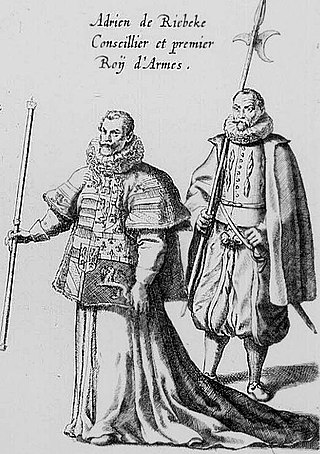
King of arms is the senior rank of an officer of arms. In many heraldic traditions, only a king of arms has the authority to grant armorial bearings and sometimes certify genealogies and noble titles. In other traditions, the power has been delegated to other officers of similar rank.
Tyler is the name of the office of outer guard of a Masonic Lodge. Masonic lodges may meet in rooms in taverns and other public meeting places, and all Lodges appoint a Tyler to guard the door from the outside against ineligible masons or malicious or curious people, to check the eligibility of latecomers, and to ensure that candidates for ceremonies in the Lodge are properly prepared. Although a junior Officer of the Lodge and often a highly experienced Past Master, he may often be considered akin to a sergeant: in some cases the Tyler may not be an unpaid member of the lodge, but a mason from another lodge employed for the purpose. Other duties often involve preparing the room for meetings, supplying regalia and equipment, serving as bar steward or acting as permanent, and sometimes resident, caretaker of the furniture and premises.

New Zealand Herald of Arms Extraordinary is an officer of arms representing the heraldic interests of New Zealand. Although affiliated with the College of Arms in London, the New Zealand Herald lives and works in New Zealand, and is not a member of the College Chapter. Since the New Zealand Herald was appointed, there have been questions as to his legitimacy and whether, as working under the authority of the College of Arms, he has any legal authority to regulate heraldry in New Zealand. The current New Zealand Herald of Arms Extraordinary is Phillip O'Shea.

Sir Malcolm Rognvald Innes of Edingight was Lord Lyon King of Arms of Scotland from 1981 until 2001.

A herald, or a herald of arms, is an officer of arms, ranking between pursuivant and king of arms. The title is commonly applied more broadly to all officers of arms.
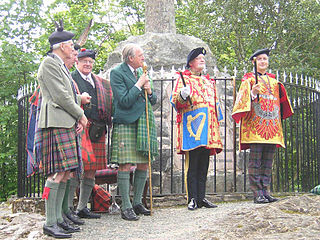
A private officer of arms is one of the heralds and pursuivants appointed by great noble houses to handle all heraldic and genealogical questions.

Sir Gilbert Dethick was a long-serving English officer of arms at the College of Arms in London. He would eventually rise to the highest heraldic office in England and serve as Garter Principal King of Arms.

Finlaggan Pursuivant of Arms is the private officer of arms of the Clan Donald in Scotland.
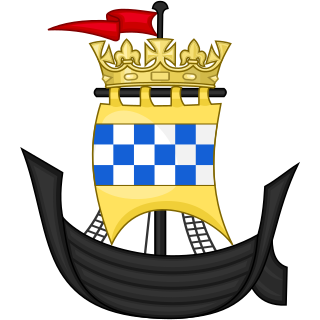
Bute Pursuivant of Arms is a Scottish pursuivant of arms of the Court of the Lord Lyon.
George Alexander Way of Plean CStJ is a Scottish Sheriff and former Procurator Fiscal of the Court of the Lord Lyon in Scotland. In November 2015, it was announced that he was to be the first Scottish Sheriff to be appointed a member of the Royal Household in Scotland as Falkland Pursuivant Extraordinary at the Court of the Lord Lyon. In December 2017, he was promoted to Carrick Pursuivant in Ordinary and then to Rothesay Herald in 2024. In 2020, he was appointed Chancellor of the Diocese of Brechin. In June 2021, he was appointed as Genealogist of the Priory of Scotland in the Most Venerable Order of St.John.

Heraldry in Scotland, while broadly similar to that practised in England and elsewhere in western Europe, has its own distinctive features. Its heraldic executive is separate from that of the rest of the United Kingdom.
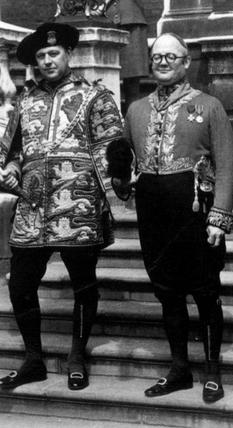
Sir Alexander Colin Cole was a long serving officer of arms at the College of Arms in London. Eventually, he would rise to the rank of Garter Principal King of Arms, the highest heraldic office in England and Wales.
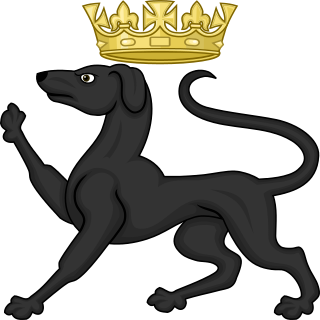
Linlithgow Pursuivant of Arms is a Scottish pursuivant of arms of the Court of the Lord Lyon.
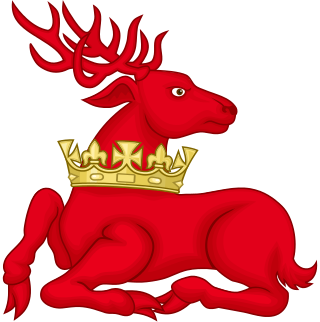
Falkland Pursuivant of Arms is a Scottish pursuivant of arms of the Court of the Lord Lyon.

The Scottish Gaelic word clann means children. In early times, and possibly even today, Scottish clan members believed themselves to descend from a common ancestor, the founder of the clan, after whom the clan is named. The clan chief is the representative of this founder, and represents the clan. In the Scottish clan system, a chief is greater than a chieftain (ceann-cinnidh), a designation applied to heads of branches of a clan. Scottish clans that no longer have a clan chief are referred to as armigerous clans.
In Craft Freemasonry, sometimes known as Blue Lodge Freemasonry, every Masonic lodge elects or appoints Masonic lodge officers to execute the necessary functions of the lodge's life and work. The precise list of such offices may vary between the jurisdictions of different Grand Lodges, although certain factors are common to all, and others are usual in most.

The Court of the Lord Lyon, or Lyon Court, is a standing court of law, based in New Register House in Edinburgh, which regulates heraldry in Scotland. The Lyon Court maintains the register of grants of arms, known as the Public Register of All Arms and Bearings in Scotland, as well as records of genealogies.















